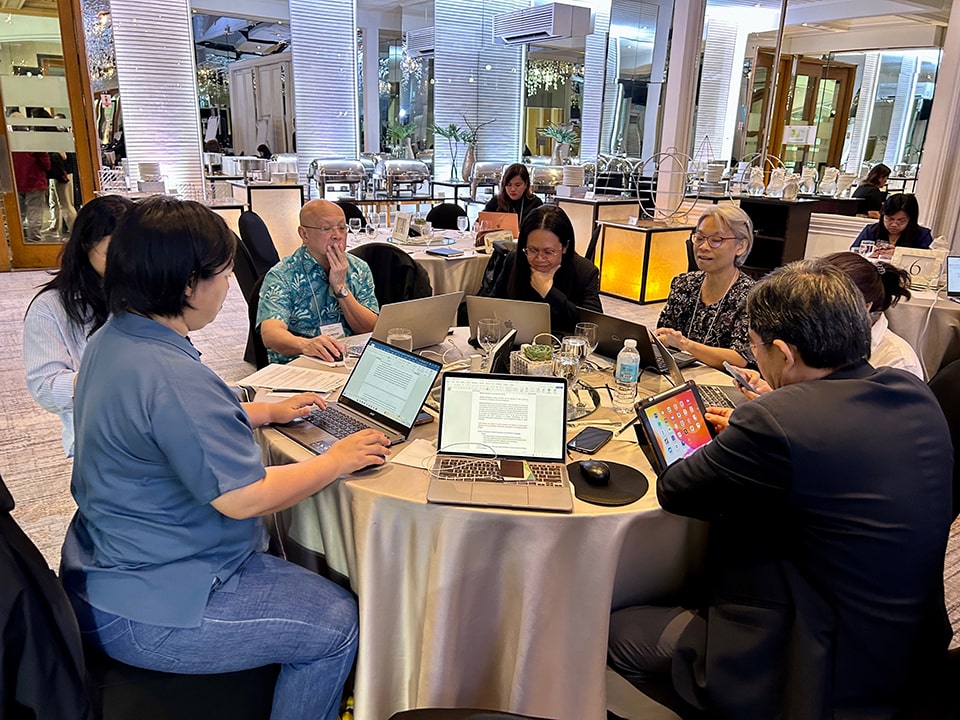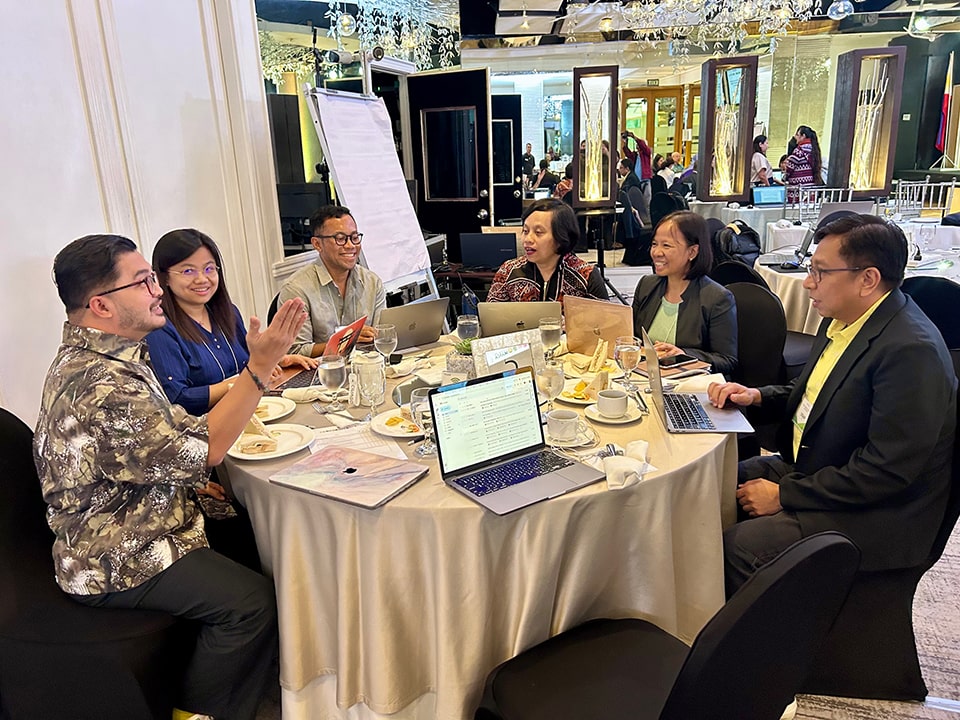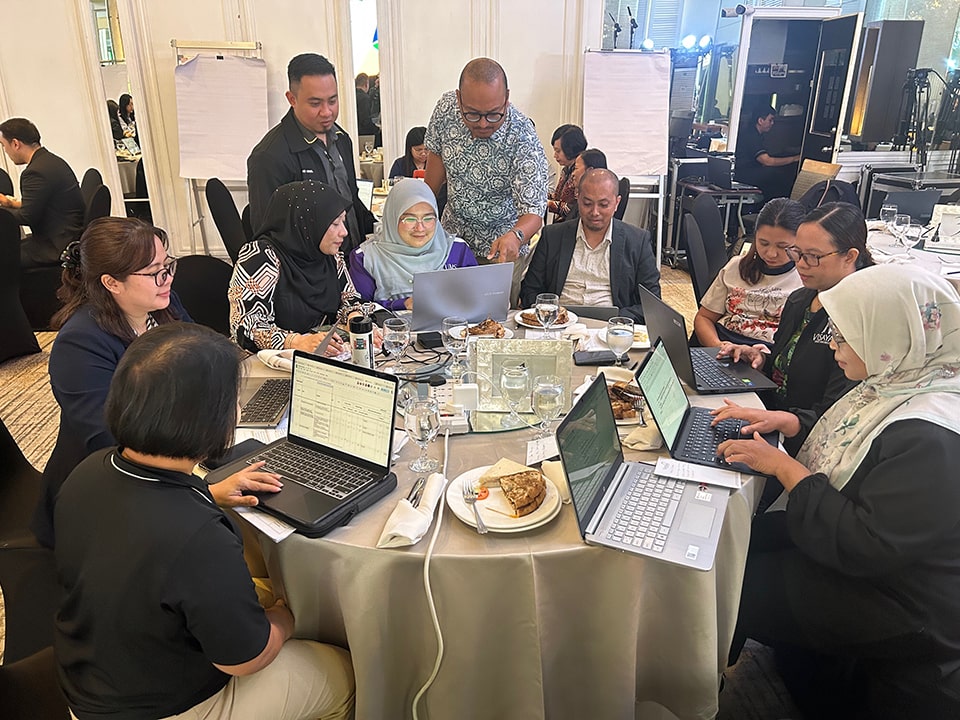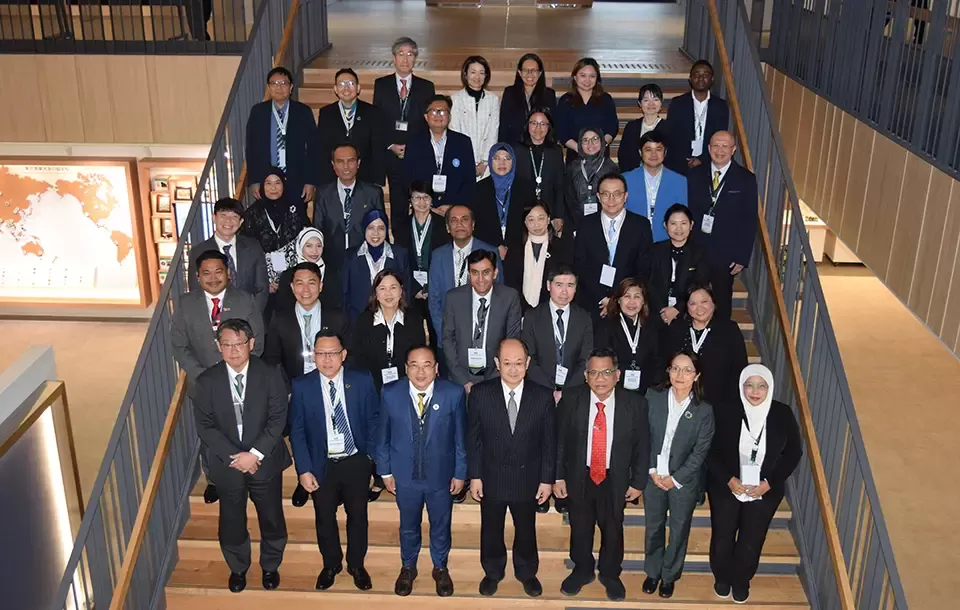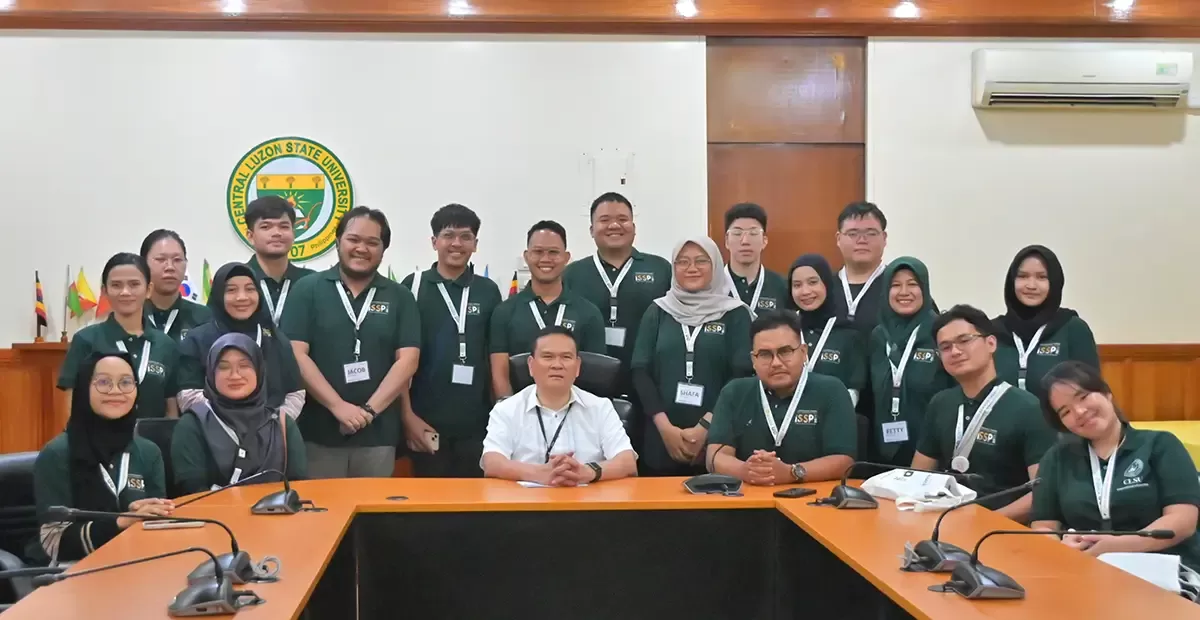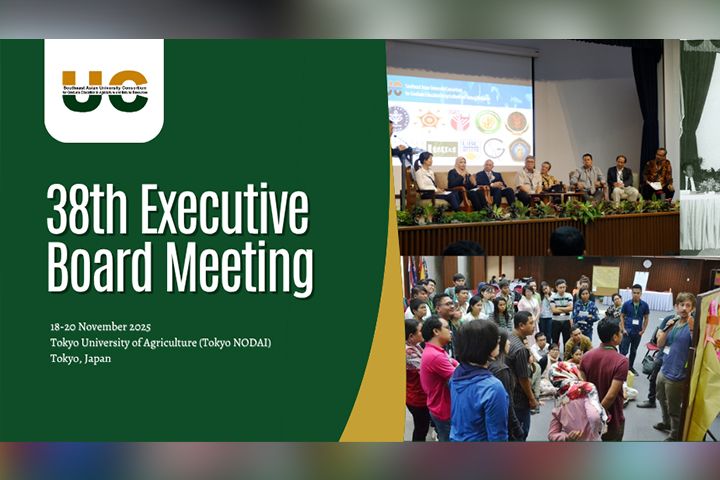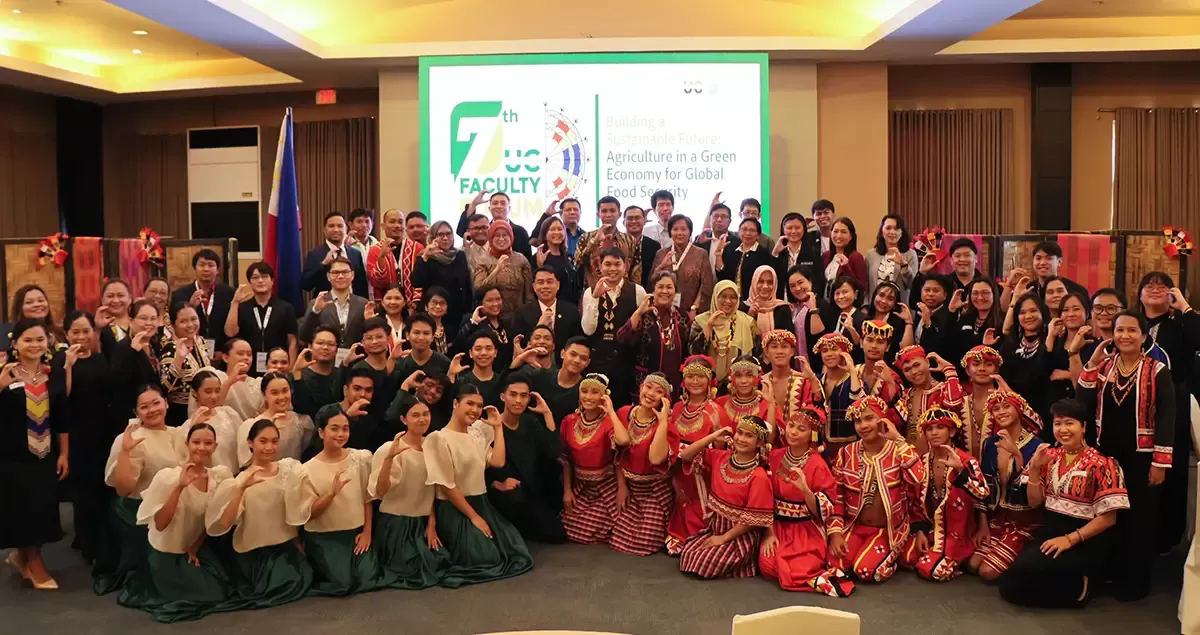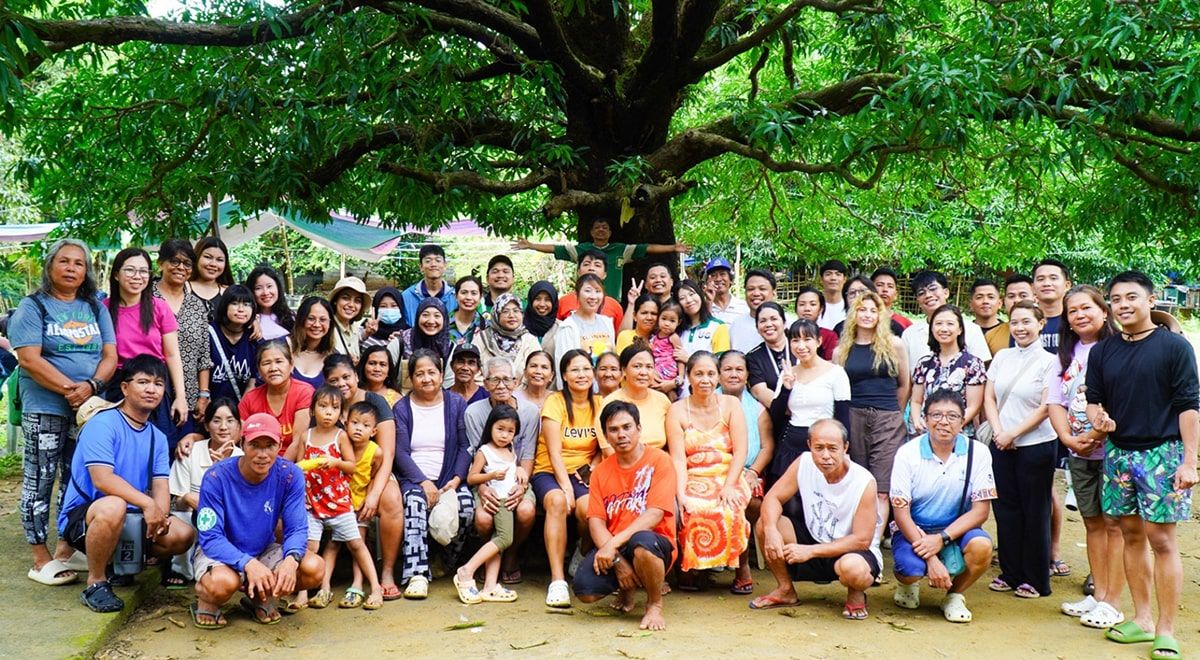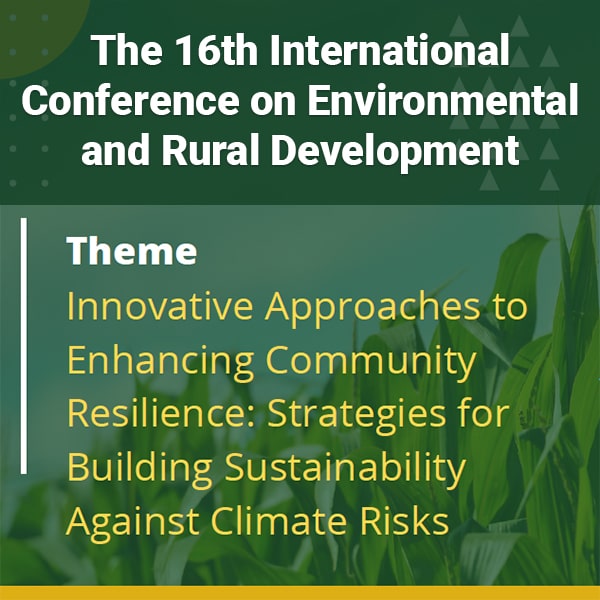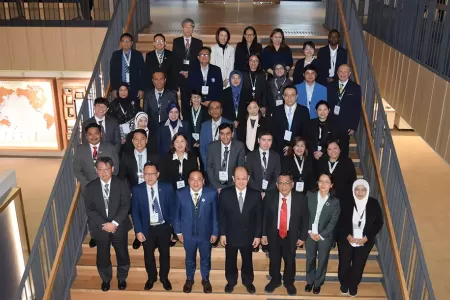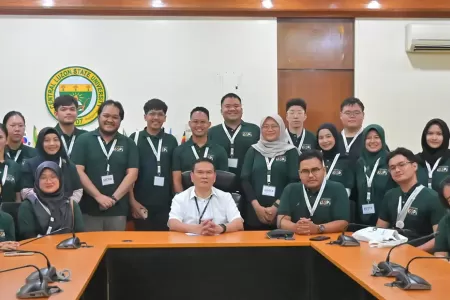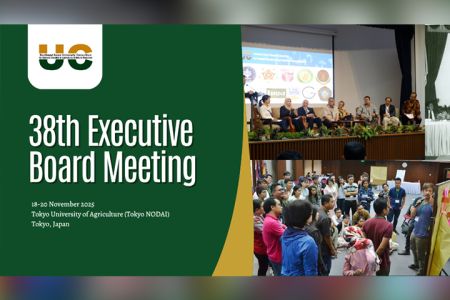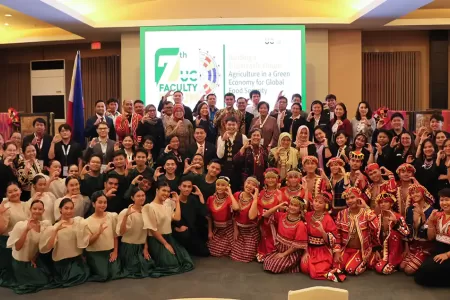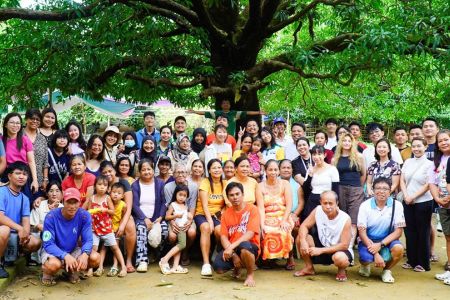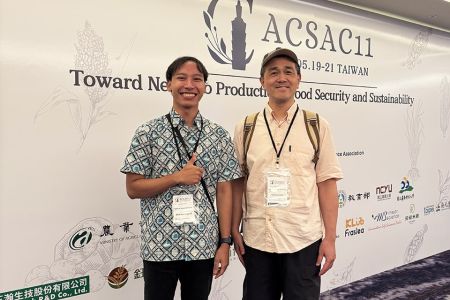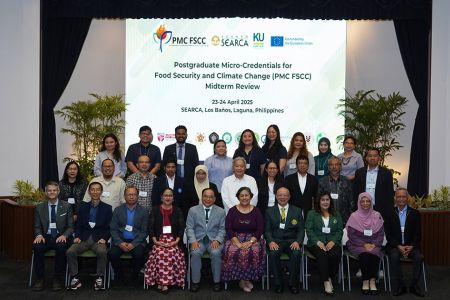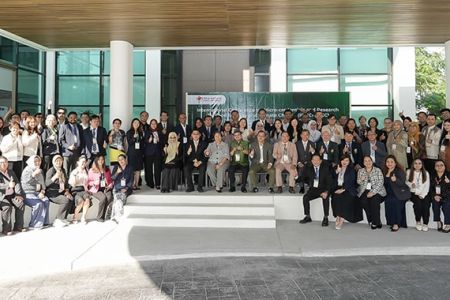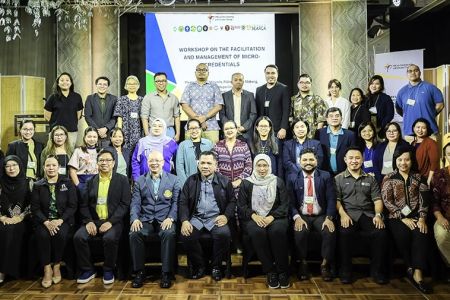PMC FSCC workshop enhances module development for food security and climate change micro-credentials
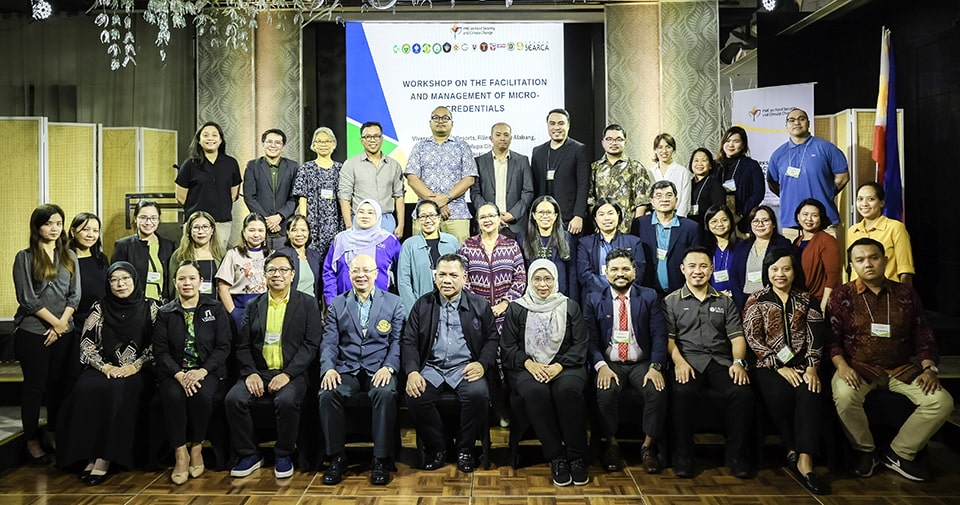
A capacity-building workshop under Work Package 2: Module Development and Training of the Postgraduate Micro-Credentials for Food Security and Climate Change (PMC FSCC) project was conducted from 14-16 January 2025, at Vivere, Alabang, Muntinlupa, Philippines. The initiative, funded by the European Commission’s ERASMUS+ Capacity Building in Higher Education (CBHE) program, aims to develop micro-credentials and modular learning programs addressing global challenges in food security and climate change.
The workshop brought together key stakeholders and experts from participating institutions including Institut Pertanian Bogor (IPB), Universitas Gadjah Mada (UGM), and Universitas Brawijaya (UB) from Indonesia; Universiti Malaysia Sabah (UMS) and Universiti Putra Malaysia (UPM); Maejo University (MJU) and Kasetsart University (KU) from Thailand; and the University of the Philippines Los Baños (UPLB), Central Luzon State University (CLSU), Visayas State University (VSU), and the Southeast Asian Regional Center for Graduate Study and Research in Agriculture (SEARCA) from the Philippines.
Under the leadership of UPLB for WP2, the event facilitated collaboration, best practice sharing, and skill enhancement in instructional design, content development, and digital delivery. A pre-workshop online session on 9 January 2025 set the stage, engaging module writers and developers in initial discussions.
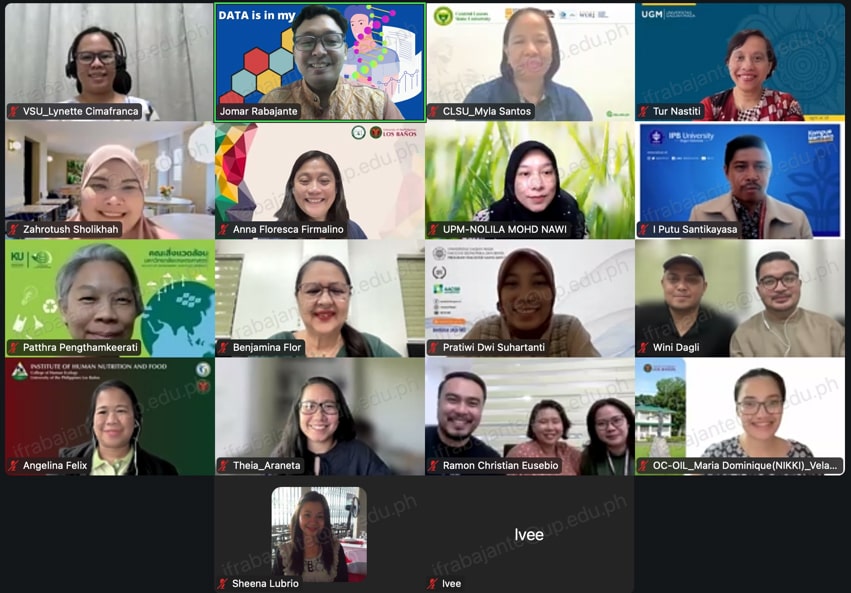
The onsite workshop officially commenced on 14 January 2025 with welcome remarks from Dr. Nur Azura Binti Adam, Deputy Director for Programs at SEARCA, emphasizing the importance of collaboration and innovation in developing effective modules. Plenary sessions provided insights into module development. Dir. Anna Floresca F. Firmalino, Director of the Office of International Linkages, UPLB, outlined the workshop structure, expected outputs, and key guidelines. Updates on Module 4 were presented by Dr. Jomar F. Rabajante, Dean of the Graduate School, UPLB, and Module 4 Coordinator, who emphasized a structured approach to module alignment.
Dr. Benjamina G. Flor, from the College of Development Communication (CDC), UPLB, led a session on facilitator and learner guides, reinforcing the need for structured instructional design. During breakout sessions, module teams worked on key aspects such as assessment tools, case study integration, and content engagement strategies. Notably, the Module 3 team reached a consensus on incorporating self-assessment quizzes and a reflective question framework, as well as a dynamic case study spanning the 8-week course.
The last two days of the workshop focused on refining module materials and preparing for pilot testing. A synthesis workshop led by Dr. Edmund G. Centeno from CDC-UPLB consolidated key learnings and outcomes. Dr. Ronilo Flores from UPLB facilitated discussions on future module rollouts, emphasizing harmonization guidelines across partner universities. In his closing remarks, Assoc. Prof. Dr. Buncha Chinnasri, PMC FSCC Project Coordinator and SEARCA Adjunct Fellow, lauded the team’s dedication and participation, expressing confidence in meeting the project’s deliverables through continued collaboration.
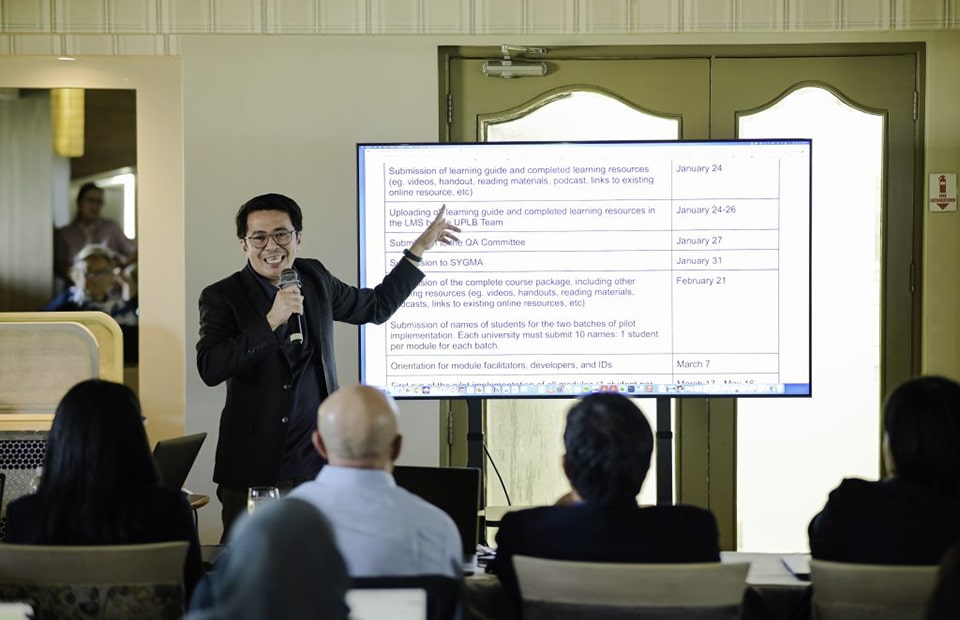
The PMC FSCC workshop marked a significant step toward developing innovative micro-credentials in food security and climate change, underscoring the power of regional partnerships in advancing higher education and sustainable solutions.

